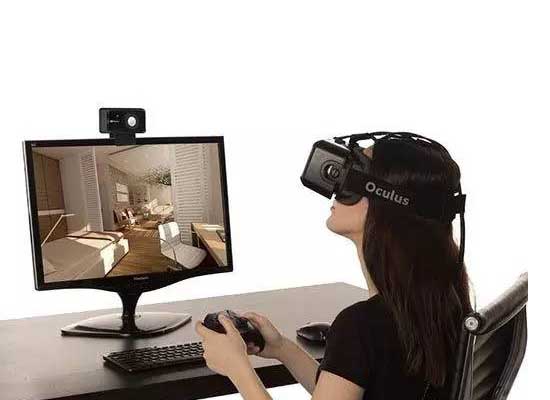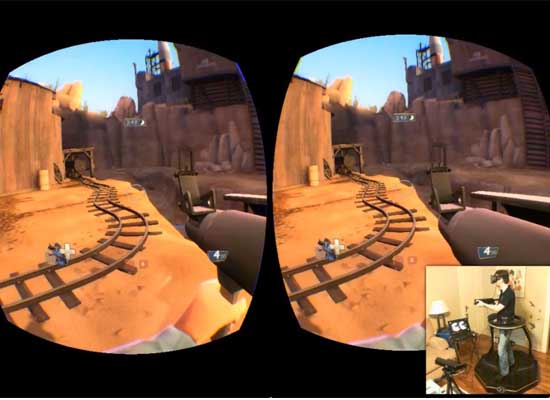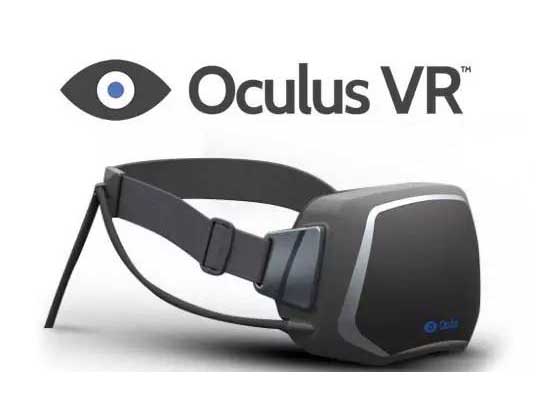How China's Silicon Valley is Developing Virtual Reality
By Dongli (NOUVELLES D'EUROPE)
"People have been watching science fiction and wanting virtual reality for decades," says Oculus founder Palmer Luckey. "There's this idea of parallel digital worlds, where you can live, work, play and communicate. We have always known that VR isn't just about games – in fact, that's a very modern conception."
Virtual reality is a computer generated modelled reality, a digital world where you can be anywhere at any time. Put on a VR goggles and off you're away – travel in space and touch the stars, meet with friends and watch movies in a private theatre. 2016 is an exciting year for VR, it will be the industry's first go at mass-marketing the product.

VR used for viewing property, real-estate industry says it helps to reduce costs
The first monochrome VR googles were first made 30 years ago by Nintendo, and since they've been developed and popularised after Facebook acquired VR firm Oculus.
Palmer Luckey, VR founder of Oculus, saw the potential for the market to create a new way for people to meet using VR technology. As if live streaming, video, email, messaging and the myriad number of social networks weren't enough, he says existing electronic communication is still in its infancy. "Every form of digital communication is generally inferior to face-to-face communication," he says. "There's something you get by actually meeting people that you don't get from email, text or phone. Virtual reality is the first technology that tries to make digital communication, not just more efficient or more useful, but more compelling and more human."
Palmer Luckey envisages a world which is more interactive, "Imagine being able to sit in front of a campfire and hang out with friends anytime you want. Or being able to watch a movie in a private theatre with your friends anytime you want," he tells Guardian.

China's Silicon Valley Zhongguancun
VR is getting big in China, it is projected to be worth $8.5 billion based on research by Beijing firm, IResearch, reports Bloomberg. It is all happening in China's Silicon Valley, Zhongguancun a place for young thirty somethings, a hub for developing knowledge and information, an area that took off in the 80s when the economy was opening up. The space hosts big companies such as Baidu, Lenovo, Xiaomi, and Tencent who currently own China's biggest mobile app, WeChat, and who have recently developed a VR headset.

Tencent 2015 VR conference
The VR industry is working with industries such as real estate, entertainment and filming. According to media stats, one fifth of China's top 100 VR start-ups are game companies, ranking second just after hardware companies. The games industry is likely to lead the way using VR technology.

VR Gaming
Yangwen, a mobile games development engineer, said the advancement of VR technology offers new space for development for many games developers under intense competition. VR will become the third largest smart product after mobiles and PC in the future, and bring about a new trend of games on past experience, he adds.
His company is developing a stargazing app, in which users wear headsets and can experience space and can touch and learn about stars with a controller. His app is sure to be taken up by science museums to engage audiences.

Oculus latest VR headset
VR videos are the new thing as well as interactive games. Wu Xiangdong, co-founder of Beijing Three-Eyes Monkey Technology company says VR is breaking the boundary between real and virtual worlds, combining video with game and producing a new entertainment form.
"Compared to 360 degree video and ordinary videos, VR video adds a level of interactivity. Wearing headsets, we create interactive hot spots to attract users to move and watch," Wu added. VR shooting is more challenging than traditional shooting, it's harder to achieve the desired effect.
The popular and affordable way for VR filming is using 6 to 8 Go Pro cameras. Because it's a 360 degree shooting scene and there isn't a film crew, the camera is shot by a remote control in accordance with a fixed track or angle.
Wu tells us there are large demand for VR videos, which are mainly short videos like promos. The costs of VR filming is very high, with a video of 20-30 minutes roughly costing 400,000-500,000 yuan. Costs would multiply for longer videos.
WorldViz, an US VR company located at Zhongguancun founded 14 years ago focuses on VR engine and large-scale precise tracking. Li Xiao'ou, the General Manager in China of WorldViz, says they mainly target B (business) end market, and are the only VR technology suppliers for big companies like Nokia. Now WorldViz has tapped into many areas including VR architecture, VR games, VR marketing, VR training and filming. Lenovo announced in April that they would cooperate with WorldViz.
Li said many real estate developers are using VR to show clients virtual apartments because it's cheaper than building a real model room; headsets and controllers users allow users to travel around the room and interact with furniture, and even change floor colours to simulate decoration and design.
The B end market demand is rising, there is a need for VR to train staff in tasks such as drilling platforms and flight training. The VR industry looks promising because of its ability to save costs and reduce potential safety risks. In 2016, China will see 3000 to 6000 VR offline experience stores, schools, hospitals and company R&D facilities are all potential clients.
http://uk.china-info24.com/british/tic/tech/20160830/241385.html
